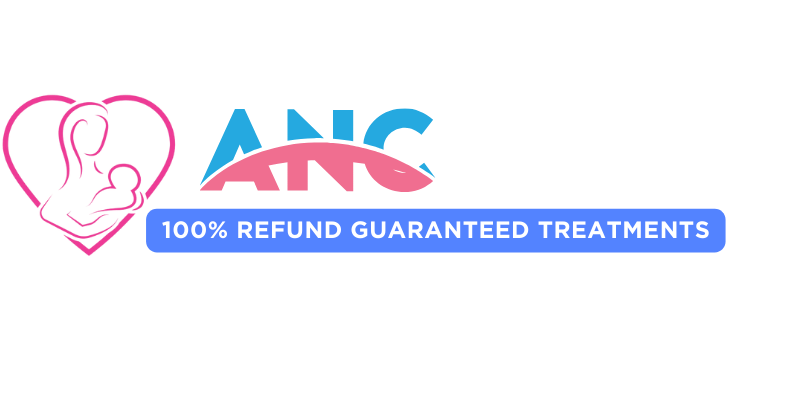Navigating the path to parenthood can be filled with complex emotions and decisions, especially when exploring assisted reproductive technologies. Among the many options available, embryo donation treatment stands out as a hopeful solution for those unable to conceive using their own gametes. In this comprehensive guide, we delve into the intricacies of embryo donation, a process that grants the gift of life through the generosity of others. From understanding the basics to considering the legal and psychological ramifications, this blog will offer a thorough exploration of each pivotal step. We begin by shedding light on the fundamentals of embryo donation, followed by a discussion of who qualifies for this treatment. We then guide you through the meticulous matching process, legal protocols, and preparatory measures essential for a smooth transition, culminating in the finale of the embryo transfer process itself. Join us as we unravel the threads of this life-changing journey, offering insight and support every step of the way.Explore the journey of embryo donation. Learn about eligibility, the matching process, legalities, preparation, and the transfer itself in a comprehensive guide.
Understanding Embryo Donation: An Overview
Embryo donation is a profound and compassionate option available to individuals and couples who desire to build a family and might be facing challenges with fertility. At the core of this process, embryo donation involves the transfer of embryos, which have been previously created through in vitro fertilization (IVF) procedures, but are no longer needed by their genetic parents. These embryos are generously donated to recipients, offering a precious opportunity for parenthood to those who may otherwise be unable to conceive using their own eggs or sperm.
As we further explore the intricacies of embryo donation, it’s important to understand the ethical, legal, and emotional dimensions that underpin it. Both donors and recipients typically undergo extensive screening processes, including medical examinations, genetic testing, and counseling to ensure that all parties make informed and carefully-considered decisions. Moreover, crafting clear agreements that delineate parental rights and responsibilities is an essential step in the journey towards a successful embryo donation.
The beauty of embryo donation resides not only in the science that enables it but also in the breadth of hope it offers to many aspiring parents. By facilitating a unique form of family-building, embryo donation stands as a testament to human empathy and technological advancement. Its availability and practice continue to evolve, illuminating new paths to parenthood and the shared dream of expanding a family.
Evaluating Eligibility: Are You a Candidate?
When considering embryo donation as a means to grow a family, one of the fundamental steps is evaluating eligibility, which encompasses a thorough review of a potential recipient’s medical and psychosocial health. To determine if you are a suitable candidate for embryo donation, fertility clinics and donation programs typically require comprehensive screening processes. These screenings are crucial in ensuring that the embryo transfer is going to happen in an environment that is conducive for the growth of a healthy baby, thereby maximizing the chances of a successful pregnancy.
Firstly, medical evaluations are imperative, as they assess not only the general physical health of the recipients but also specific reproductive health factors that could impact the success rate of the embryo donation procedure. The candidates should prepare themselves for a battery of tests which might include, but not be limited to, blood tests, uterine evaluations, and infectious disease screenings. During this phase, it is also essential to discuss any previous fertility treatments or underlying health conditions that could affect treatment outcomes.
Furthermore, most embryo donation programs consider the psychological well-being of the potential recipients to be as important as their physical health. This often involves counseling sessions to ensure that individuals or couples are emotionally ready to proceed with embryo donation and are fully aware of the implications—both the joyous and the challenging aspects—of accepting an embryo that has no genetic ties to them. These in-depth consultations not only prepare recipients for the journey ahead but also reinforce the emotional support systems that are so necessary during the fertility treatment process.
The Matching Process: Finding the Right Embryo
Embarking on the journey of embryo donation can often be filled with both emotional anticipation and considerable hope. When it comes to the matching process, finding the right embryo is a careful blend of science and personal preferences, aspiring to meet the needs and desires of prospective parents. This stage is crucial as it establishes the fundamental compatibility that ensures the requirements of both the donating parties and the recipients are respectfully met, ensuring that a harmonious resolution is achieved in the extraordinary story of creating new life.
The selection criteria for embryo donation can be extensive, and rightfully so, considering the gravity of the decision. Medical professionals assist recipients in evaluating a multitude of factors that include genetic history, health records, ethnicity, and even physical traits of the donors. It is a dance of precision and patience, where each step is taken with the utmost care, aiming to align with the future parents’ aspirations for their family. The process is not merely a clinical procedure but rather a deeply personal journey that intertwines the legacies of two different origins, culminating in a single new beginning.
As ethical considerations are paramount in the realm of embryo donation, the matching process also involves extensive counseling and informed consent documentation. These are essential in ensuring that all parties involved have a clear understanding of the implications of the donation and can make decisions that they consider to be in the best interest of the embryo. With a mix of medical scrutiny, legal foresight, and compassionate guidance, the journey towards finding the right embryo is navigated with the intention of fulfilling the profound quest for parenthood.
Legal Considerations and Consent in Embryo Donation
When delving into the realm of embryo donation, intending parents and donors must navigate through a tapestry of complex legal considerations, ensuring that all parties’ rights and responsibilities are explicitly outlined and that ethical principles are adhered to throughout the process. The sensitivity of embryo donation is reflected in the stringent legal contracts and consent forms that are drafted, often necessitating the expertise of legal professionals specializing in reproductive laws and the various guidelines that govern such a profound act of generosity and hope. It is imperative that each legally binding document captures the essence of the donor’s altruistic intent while safeguarding the recipient’s burgeoning parental rights, forming a clear pathway for the embryo’s future.
In the intricate legal landscape of embryo donation, the donors must provide unequivocal consent, often after undergoing extensive counseling to fully comprehend the ramifications of their decision—effectively terminating their parental rights and responsibilities once the embryo transfer is complete. Equally important is establishing clarity on issues such as the anonymity of the donors, potential future contact with any resulting children, and the rights of the child. These discussions and agreements are then meticulously transcribed into consent forms that respect the autonomy and wishes of all parties involved while conforming to the evolving legal standards.
A legal agreement in the context of embryo donation extends beyond simple consent—it is a delicate nexus of moral, ethical, and legal threads, each interwoven to protect the interests of the donating individuals, the recipients, and the unborn child. Thorough legal counseling aids all stakeholders in understanding the intricacies of the process, from initial consent to the handover of the embryos, thus mitigating any misunderstandings and reinforcing the integrity of the embryo donation process. As laws differ from one jurisdiction to another, it is vital that these considerations are addressed through a legal framework that is both comprehensive and specific to the locale where the embryo donation is taking place.
Preparing for Transfer: Medical and Psychological Aspects
The journey of embryo donation is one that involves extensive preparation, both for the medical procedures involved and the emotional impact of such a significant event. As prospective parents consider the path to parenthood through embryo donation, it’s critical to understand the preparation required to ensure the best possible outcome. This preparation includes a comprehensive review of medical history, a thorough assessment of current health status, and a tailored regimen to prepare the body for the upcoming embryo transfer.
On the medical side of the process, potential recipients of a embryo donation must undergo a variety of screenings and tests. These often include hormonal evaluations, infectious disease screenings, and uterine assessments to confirm the recipient’s body is ready to support a pregnancy. Moreover, meticulous synchronization of the recipient’s menstrual cycle with that of the donor’s original cycle is essential for increasing the chances of a successful implantation and ongoing pregnancy. Healthcare providers will typically provide personalized guidance to manage medications and treatments, carefully designed to create an optimal uterine environment for the donated embryo.
The psychological preparation for embryo donation recipients cannot be overstated. It incorporates counseling and psychological evaluations to ensure that individuals or couples are mentally and emotionally ready to embark on this unique parenthood journey. Coping strategies to handle the stress and emotional fluctuations that may occur throughout the process are frequently discussed and practiced. Providing emotional support for recipients is an essential component of the preparation, helping to ensure that they are resilient, informed, and equipped to proceed with a clear understanding of the implications and potential outcomes of embryo donation.
The Embryo Transfer Process: Step by Step
The embryo transfer process is a critical and final step in the journey of embryo donation. It involves a carefully coordinated sequence of events aimed at maximizing the chances of a successful pregnancy. Initially, the recipient’s uterus must be prepared to receive the donated embryo, which typically involves hormonal treatments to thicken the uterine lining and optimize the conditions for implantation.
Once the uterus is deemed ready, the next phase begins with the thawing of the frozen embryo, if it was cryopreserved. Each step here is meticulously overseen by embryologists to ensure the embryo’s viability. The patient is then usually placed under mild sedation or given pain relief to maximize comfort during the transfer. A catheter is inserted through the cervix, and with the utmost precision, the embryo is placed in the uterus. This moment is filled with anticipation as the hope is that the embryo will successfully implant and develop into a healthy pregnancy.
In the days following, patients are advised to engage in light activities, avoiding any strenuous exertion that might interfere with implantation. Follow-up appointments are crucial to monitor the success of the embryo transfer process and check for early signs of pregnancy. Throughout this time, it’s not uncommon for patients to experience a whirlwind of emotions—from hope and anxiety to excitement and fear—all of which are perfectly normal responses to the profound implications of this life-changing step in embryo donation treatment.

